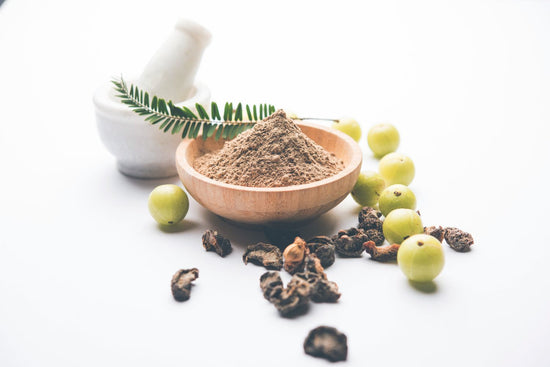Table of Contents
1. Why is Ovulation Important?
2. Top Foods to Help with Cycle Regularity and Ovulation
3. What Foods Hinder Ovulation?
4. Foods for Ovulation
If you’re trying to conceive, you likely know that ovulation plays an important role. When pregnancy isn’t a concern, we usually don’t pay too much attention to when we ovulate. Many of us don’t even realize when it happens. However, when TTC, knowing the exact day an egg is released and ready to be fertilized becomes a top priority!
While there aren’t any magic foods to trigger ovulation, there are certain things that may help optimize your reproductive system. Some can help balance your hormones, making your cycles more regular and increasing your chances of timing ovulation and intercourse correctly. Here are the top foods to stimulate ovulation, boost fertility, and increase your chances of becoming pregnant!
Why is Ovulation Important?
Ovulation is the fancy term for when an ovary releases a mature egg. While ovulation is just one part of your menstrual cycle, it plays a crucial role in pregnancy. Releasing an egg is necessary for pregnancy because a mature egg is what the sperm must meet for conception. It’s half of the TTC process; there is no pregnancy with no egg.
Most women have a menstrual cycle lasting around twenty-eight days, though your cycle may be shorter or longer. The first day of your cycle is considered to be the day you begin bleeding. It’s also the beginning of the follicular phase in which the egg (yet to be released) will mature. FSH (follicle-stimulating hormone) is responsible for ripening the ovary and readying the egg for release.
Once it’s ready, another hormone named LH (luteinizing hormone) surges, prompting the egg to burst forth from the ovary and travel down the fallopian tube. In most cases, this occurs mid-cycle, around day fourteen, for a woman with a twenty-eight-day cycle. The luteal phase comprises the second half of your menstrual cycle and is when conception can occur.
The release of the egg presents an opportunity for sperm to meet and fertilize it. This is why the days leading up to ovulation and the day of ovulation itself are known as your fertile window, usually a span of six days. Once an egg is released, it lives for less than twenty-four hours, making it imperative that there are sperm waiting to meet it during your fertile window. For reference, sperm have a lifespan of five days in optimal conditions.
So, you can see why regular cycles with predictable ovulation can significantly boost fertility! Unfortunately, cycle regularity isn’t easy or common for all women.

Top Foods to Help with Cycle Regularity and Ovulation
Some medications can help induce ovulation, though these are only reserved for women undergoing fertility treatments in most cases. Additionally, it can be beneficial for some to try natural methods, including foods that increase ovulation rate. Sometimes, this is known as an ovulation diet because there is particular food to eat during ovulation week that might improve your chances.
If you’re looking to prime your body for conception, here are a few suggestions of food to induce ovulation naturally.
Fruits and Veggies
Fruits and vegetables are an excellent way to fortify your diet with necessary nutrients, including vitamins and minerals. While this is generally a good idea for your overall health, one Harvard study found it may boost fertility too.
Including fruits and vegetables in your diet often means your body receives lots of micronutrients. Such as glutathione which is needed for egg quality, or phytoestrogens which can support cycle balance. Both of these compounds are found in fruits and veggies. Most of these foods that promote ovulation also contain antioxidants, anti-inflammatory substances, and immunity boosters that can help optimize your reproductive system for conception.
Aside from the fact that they’re nutrient-rich, filling your plate with fresh fruits and vegetables will mean less sugar from carbs and trans fats. Two things have been linked with a higher incidence of ovulatory disorder. The best way to enjoy fruits and veggies is raw, though juicing them or steaming them are healthy alternatives too.
Complex Carbs
As mentioned, processed carbs rich in sugars may decrease fertility. When choosing the best foods for ovulation, look for slow or complex carbs that take longer to digest.
Why? Quickly broken down carbs, like refined or processed carbs, can lead to a spike in blood sugar, which triggers insulin to be released from the pancreas to control the elevated levels. Some studies have found that higher insulin levels may prevent or delay ovulation.
Slow carbs are full of fiber and take longer to be digested. This means consistent and slower sugar in the blood and insulin production. Additionally, these fiber-rich foods often contain lots of B vitamins and vitamin E, which are excellent for fertility. A quarter of your meal portion should be complex carbs such as quinoa, brown rice, oats, or amaranth. Those struggling with PCOS should consult their doctor, as avoiding gluten may be recommended.
Fats
Ayurveda often cites friendly-friendly foods as those that are oily, warm, heavy, sticky, and sweet. The oily characteristic aligns with studies that have found monounsaturated fats can promote regular ovulation, decrease inflammation, and boost TTC success rates.
Plant-based healthy fats, not trans fats, are ideal for those trying to conceive. They can be found in avocados, grapeseed oil, ghee, olive oil, and nuts. They’re imperative for hormone production and can assist your body in being able to absorb those all-important fertility vitamins like vitamin E. While trans fats can lead to insulin resistance and imbalanced blood sugar, healthy fats have the opposite effect. Don’t fear fat either, as studies have found low-fat diets aren’t conducive to fertility.
Consuming healthy plant-based fats in moderation is vital.
Protein
Protein is another natural ovulation booster because it’s rich in minerals like iron and zinc, which can help support a healthy pregnancy. Cold-water fish, lean meats, eggs, and plant proteins are excellent choices! You’ll want to avoid high levels of saturated fats found in some animal proteins. Eating adequate portions of protein can help maintain a healthy weight which is key to achieving hormonal regulation and consistent ovulation.
Eggs, in particular, have lots of choline. At the same time, sea protein sources are rich in omega-3 fatty acids. Both are important for regular cycles and the development of pregnancy. However, there is a real argument for plant protein. Researchers in one study found that consuming 5% of total energy intake in the form of plant protein rather than animal reduced the risk of ovulatory infertility significantly!
Dairy
Dairy isn’t a fertility must, but there are some benefits. A few studies have found that low-fat dairy options aren’t as conducive to fertility, sometimes increasing a woman’s risk of anovulatory infertility.
While Greek yogurt is an excellent source of probiotics for gut health and dairy proteins can be nourishing, you usually don’t need to overdo it with dairy intake. Including some dairy (that is mainly free from chemical or hormonal manipulation) is often enough to fulfill dietary fertility needs.

What Foods Hinder Ovulation?
There are some foods you may want to avoid during your TTC journey. We’ve mentioned how unhealthy fats and simple carbs can throw your blood sugar levels off, affecting hormone production and, as a result, ovulation. Large amounts of caffeine can prohibit cervical mucus production, and significant alcohol intake has been linked with reduced fertility. Finally, processed soy has been tied to decreased ovarian function.
Foods for Ovulation
While everyone’s nutritional needs differ, some dietary characteristics are thought to support healthy menstrual cycles and reproductive systems for most women. Starting by including some of these foods in your diet is a step in the right direction. You can also work with your doctor to evaluate your personal nutrition needs.
In addition to eating foods that benefit ovulation, including an herbal supplement can be an excellent choice. A well-rounded supplement like Freshly Moms Fertility Support for Women contains herbs that have been shown to promote hormonal balance, regulate ovulation, and support fertility. Many of these herbs are also rich in vitamins and minerals conducive to trying to conceive. It’s just another way to ensure you’re doing all you can on your journey to motherhood!
Freshly Moms Fertility Products
Women's Complete Fertility Support
Fertility support system developed by experts. Blend of natural herbs and vitamins to help a woman's body prepare for conception.
Buy NowMen's Complete Fertility Support
Freshly Moms fertility support combines all the above active ingredients along with essential vitamins to help improve the sperm count and quality.
Buy nowPosted by Shruti Mishra
Shruti is the founder of Freshly Moms. She is a profesional plant based chef from Natural Gourmet Institute, NY and a certified IIN health coach. She has been working with Ayurveda, food & nutrition since over 10 years and is also a fresh mom herself.
This article is not a medical advice and is not meant for every situation. Every woman's body is different and may respond differently to supplements.







